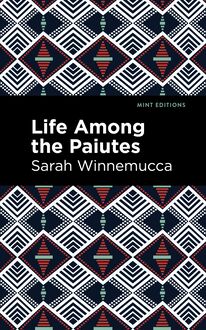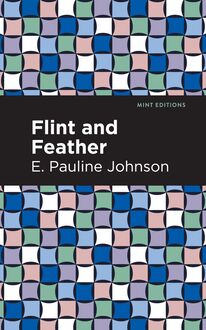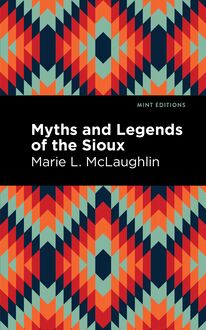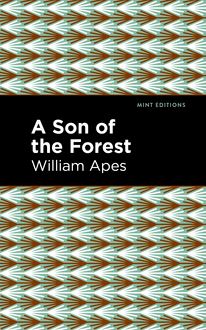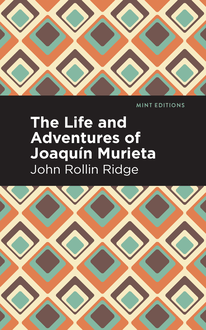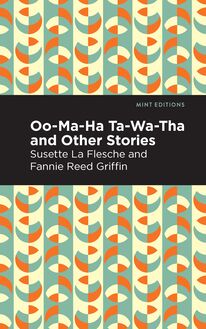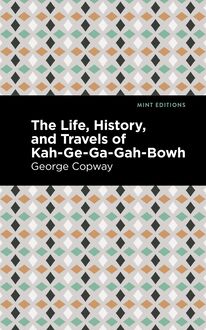-
 Univers
Univers
-
 Ebooks
Ebooks
-
 Livres audio
Livres audio
-
 Presse
Presse
-
 Podcasts
Podcasts
-
 BD
BD
-
 Documents
Documents
-
- Cours
- Révisions
- Ressources pédagogiques
- Sciences de l’éducation
- Manuels scolaires
- Langues
- Travaux de classe
- Annales de BEP
- Etudes supérieures
- Maternelle et primaire
- Fiches de lecture
- Orientation scolaire
- Méthodologie
- Corrigés de devoir
- Annales d’examens et concours
- Annales du bac
- Annales du brevet
- Rapports de stage
La lecture à portée de main
Vous pourrez modifier la taille du texte de cet ouvrage
Découvre YouScribe en t'inscrivant gratuitement
Je m'inscrisDécouvre YouScribe en t'inscrivant gratuitement
Je m'inscrisEn savoir plus
Vous pourrez modifier la taille du texte de cet ouvrage
En savoir plus

Description
The Birch Bark Books of Simon Pokagon is a collection of articles and legends written for and about the Potawatomi tribe by Simon Pokagon. Originally printed on the bark of the white birch tree, a gesture made “out of loyalty to [Pokagon’s] own people, and gratitude to the Great Spirit, who […] provided for [their] use […] this most remarkable tree,” these works paint a picture of America’s native people. “[On] behalf of my people, the American Indians, I hereby declare to you, the pale-faced race that has usurped our lands and homes, that we have no spirit to celebrate with you the great Columbian Fair now being held in this Chicago city, the wonder of the world. No; sooner would we hold high joy-day over the graves of our departed fathers, than to celebrate our own funeral, the discovery of America.” Before Chicago was one of the largest and most prosperous cities in the nation, it was home to the Anishinaabe peoples, including the Potawatomi to whom Simon Pokagon belonged. Angered with the erasure of his people and the whitewashing of the history of violence against America’s indigenous tribes, Pokagon gave this opening speech, “The Red Man’s Rebuke,” at the World’s Columbia Exposition of 1893. A lifelong activist, Pokagon dissects the false narrative of savagery and civilization which justified the actions of European settlers while vilifying those they displaced in their movement westward. During the Exposition, Pokagon would speak to a crowd of 75,000 on his hope for the future of his people. Including lesser known works, such as, “Algonquin Legends of South Haven,” “Algonquin Legends of Paw Paw” and “The Pottawattomie Book of Genesis,” this beautifully designed edition of Simon Pokagon’s work is a classic of Native American literature reimagined for modern readers.
Sujets
Informations
| Publié par | Mint Editions |
| Date de parution | 26 octobre 2021 |
| Nombre de lectures | 0 |
| EAN13 | 9781513210773 |
| Langue | English |
Informations légales : prix de location à la page 0,0300€. Cette information est donnée uniquement à titre indicatif conformément à la législation en vigueur.
Extrait
The Birch Bark Books of Simon Pokagon
Simon Pokagon
The Birch Bark Books of Simon Pokagon features work first published between 1893–1901.
This edition published by Mint Editions 2021.
ISBN 9781513211978 | E-ISBN 9781513210773
Published by Mint Editions®
minteditionbooks.com
Publishing Director: Jennifer Newens
Design & Production: Rachel Lopez Metzger
Project Manager: Micaela Clark
Typesetting: Westchester Publishing Services
To the Memory of William Penn, Roger Williams,
the late lamented
Helen Hunt Jackson,
and many others now in Heaven,
Who conceived that Noble spirit of Justice
Which recognizes the Brotherhood of the
Red Man, and to all others now living
Defenders of our race,
I most gracefully dedicate this tribute of the forest.
—Chief Pokagon
C ONTENTS A N OTE B Y THE A UTHOR T HE R ED M AN’S R EBUKE T HE F UTURE OF THE R ED M AN I NDIAN S UPERSTITIONS AND L EGENDS T HE G REAT F LOOD P ICTURES OF G OD B EFORE AND A FTER H E M ADE THE W ORLD I NDIAN S PIRITUALISM O RIGIN OF O UR T RIBAL F LOWER— T HE T RAILING A RBUTUS G OD’S K ETTLE T HANKSGIVING F EASTS, AND F EASTS FOR THE D EAD L OVE AND M ARRIAGE T HE S ACRED W HITE D EER E PILOGUE A LGOQUIN L EGENDS OF S OUTH H AVEN A LGONQUIN L EGENDS OF P AW P AW L AKE T HE P OTTAWATTOMIE B OOK OF G ENESIS: L EGEND OF THE C REATION OF M AN
A N OTE B Y THE A UTHOR
M y object in publishing the “Red Man’s Rebuke” on the bark of the white birch tree, is out of loyalty to my own people, and gratitude to the Great Spirit, who in his wisdom provided for our use for untold generations, this most remarkable tree with manifold bark, used by us instead of paper, being of greater value to us as it could not be injured by sun or water.
Out of the bark of this wonderful tree were made hats, caps, and dishes for domestic use, while our maidens tied with it the knot that sealed their marriage vow; wigwams were made of it as well as large canoes that outrode the violent storms on lake and sea; it was also used for light and fuel at our war councils and spirit dances. Originally the shore of our northern lakes and streams were fringed with it and evergreen, and the white charmingly contrasted with the green mirrored from the water was indeed beautiful, but like the red man this tree is vanishing from our forests.
“Alas for us! our day is o’er
Our fires are out from shore to shore;
No more for us the wild deer bounds—
The plow is on our hunting-grounds.
The pale man’s ax rings through our woods
The pale man’s sail skims o’er floods;
Our pleasant springs are dry.
Our children—look with power oppressed
Beyond the mountains of the west
Our children go—to die!”
THE RED MAN’S REBUKE
“Shall not one line lament our forest race,
For you struck out from wild creation’s face?
Freedom—the selfsame freedom you adore,
Bade us defend our violated shore.”
I n behalf of my people, the American Indians, I hereby declare to you, the pale-faced race that has usurped our lands and homes, that we have no spirit to celebrate with you the Great Columbian Fair now being held in this Chicago city, the wonder of the world.
No; sooner would we hold high joy-day over the graves of our departed fathers, than to celebrate our own funeral, the discovery of America. And while you who are strangers, and you who live here, bring the offerings of the handiwork of your own lands, and your hearts in admiration rejoice over the beauty and grandeur of this young republic, and you say, “Behold the wonders wrought by our children in this foreign land,” do not forget that this success has been at the sacrifice of our homes and a once happy race.
Where these great Columbian show-buildings stretch skyward, and where stands this “Queen City of the West,” once stood the red man’s wigwam; here met their old men, young men, and maidens; here blazed their council-fires. But now the eagle’s eye can find no trace of them. Here was the center of their wide-spread hunting-grounds; stretching far eastward, and to the great salt Gulf southward, and to the lofty Rocky Mountain chain westward; and all about and beyond the Great Lakes northward roamed vast herds of buffalo that no man could number, while moose, deer, and elk were found from ocean to ocean. Pigeons, ducks, and geese in near bow-shot moved in great clouds through the air, while fish swarmed our streams, lakes, and seas close to shore. All were provided by the Great Spirit for our use; we destroyed none except for food and use; had plenty and were contented and happy.
But alas! the pale-faces came by chance to our shores, many times very needy and hungry. We nursed and fed them,—fed the ravens that were soon to pluck out our eyes, and the eyes of our children; for no sooner had the news reached the Old World that a new continent had been found, peopled with another race of men, than, locust-like, they swarmed on all our coasts; and, like the carrion crows in spring, that in circles wheel and clamor long and loud, and will not cease until they find and feast upon the dead, so these strangers from the East long circuits made, and turkey-like they gobbled in our ears, “Give us gold, give us gold”; “Where find you gold? Where find you gold?”
We gave for promises and “geegaws” all the gold we had, and showed them where to dig for more; to repay us, they robbed our homes of fathers, mothers, sons, and daughters; some were forced across the sea for slaves in Spain, while multitudes were dragged into the mines to dig for gold, and held in slavery there until all who escaped not, died under the lash of the cruel task-master. It finally passed into their history that, “the red man of the west, unlike the black man of the east, will die before he’ll be a slave.” Our hearts were crushed by such base ingratitude; and, as the United States has decreed, “No Chinaman shall land on our shores,” so we then felt that no such barbarians as they, should land on ours .
In those days that tried our fathers’ souls, tradition says: “A crippled, grey-haired sire told his tribe that in the visions of the night he was lifted high above the earth, and in great wonder beheld a vast spider-web spread out over the land from the Atlantic Ocean to the setting sun. Its network was made of rods of iron; along its lines in all directions rushed monstrous spiders, greater in strength, and larger far than any beast of earth, clad in brass and iron, dragging after them long rows of wigwams with families therein, outstripping in their course the flight of birds that fled before them. Hissing from their nostrils came forth fire and smoke, striking terror to both foul and beast. The red men hid themselves in fear, or fled away, while the white man trained these monsters for the war path, as warriors for battle.
The old man who saw the visions claimed it meant that the Indian race would surely pass away before the pale-faced strangers. He died a martyr to his belief. Centuries have passed since that time, and we now behold in the vision, as in a mirror, the present network of railroads, and the monstrous engines with their fire, smoke, and hissing steam, with cars attached as they go sweeping through the land.
The cyclone of civilization rolled westward; the forests of untold centuries were swept away; streams dried up; lakes fell back from their ancient bounds; and all our fathers once loved to gaze upon was destroyed, defaced, or marred, except the sun, moon, and starry skies above, which the Great Spirit in his wisdom hung beyond their reach.
Still on the storm-cloud rolled, while before its lightning and thunder the beasts of the earth and the fowl of the air withered like grass before the flame—were shot for love of power to kill along, and left to spoil upon the plains. Their bleaching bones now scattered far and near, in shame declare the wanton cruelty of pale-faced men. The storm unsatisfied on land swept our lakes and streams, while before its clouds of hooks, nets, and glistening spears the fish vanished from our waters like the morning dew before the rising son. Thus our inheritance was cut off, and we were driven and scattered as sheep before the wolves.
Nor was this all. They brought among us fatal diseases our fathers knew not of; our medicine-men tried in vain to check the deadly plague; but they themselves died, and our people fell as fall the leaves before the autumn’s blast.
To be just, we must acknowledge, there were some good men with these strangers, who gave their lives for ours, and in great kindness taught us the revealed will of the Great Spirit through his Son Jesus, the mediator between God and man. But while we were being taught to love the Lord our God with all our heart, mind, and strength, and our neighbors as ourselves, and our children were taught to lisp “Our Father who art in heaven, hallowed be thy name,” bad men of the same race, whom we thought of the same belief, shocked our faith in the revealed will of the Father, as they came among us with bitter oaths upon their lips, something we had never heard before, and cups of fire-water in their hands, something we had never seen before. They pressed the sparkling glasses to our lips and said, “Drink, and you will be happy.” We drank thereof, we and our children, but alas! like the serpent that charms to kill, the drink-habit coiled about the heart-strings of its victims, shocking onto death, friendship, love, honor, manhood—all that makes men good and noble; crushing out all ambition, and leaving naught but a culprit vagabond in the place of a man.
Now as we have been taught to believe that our first parents ate of the forbidden fruit, and fell, so we as fully believe this fire-water is the hard-cider of the white man’s devil, made from the fruit of that tree that brought death in to the world, and all our woes. The arrow, the scalping-knife, and the tomahawk used on the war-path were merciful compared with it; they were used in our defe
-
 Univers
Univers
-
 Ebooks
Ebooks
-
 Livres audio
Livres audio
-
 Presse
Presse
-
 Podcasts
Podcasts
-
 BD
BD
-
 Documents
Documents
-
Jeunesse
-
Littérature
-
Ressources professionnelles
-
Santé et bien-être
-
Savoirs
-
Education
-
Loisirs et hobbies
-
Art, musique et cinéma
-
Actualité et débat de société
-
Jeunesse
-
Littérature
-
Ressources professionnelles
-
Santé et bien-être
-
Savoirs
-
Education
-
Loisirs et hobbies
-
Art, musique et cinéma
-
Actualité et débat de société
-
Actualités
-
Lifestyle
-
Presse jeunesse
-
Presse professionnelle
-
Pratique
-
Presse sportive
-
Presse internationale
-
Culture & Médias
-
Action et Aventures
-
Science-fiction et Fantasy
-
Société
-
Jeunesse
-
Littérature
-
Ressources professionnelles
-
Santé et bien-être
-
Savoirs
-
Education
-
Loisirs et hobbies
-
Art, musique et cinéma
-
Actualité et débat de société
- Cours
- Révisions
- Ressources pédagogiques
- Sciences de l’éducation
- Manuels scolaires
- Langues
- Travaux de classe
- Annales de BEP
- Etudes supérieures
- Maternelle et primaire
- Fiches de lecture
- Orientation scolaire
- Méthodologie
- Corrigés de devoir
- Annales d’examens et concours
- Annales du bac
- Annales du brevet
- Rapports de stage
